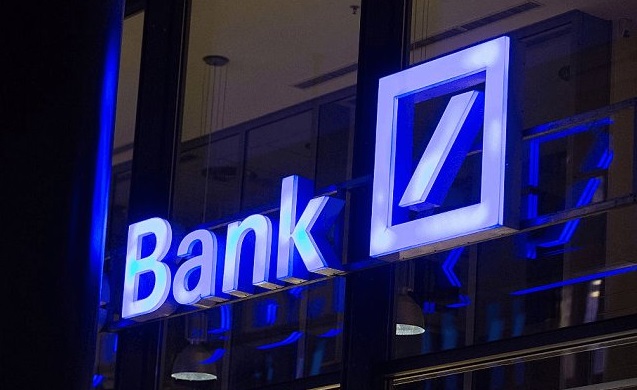Weak market is not a problem for Deutsche Bank profit

Deutsche Bank on Thursday said its third-quarter profit more than doubled, beating analysts' expectations, despite a fall in revenue. The German bank said net income in the quarter was €649 million ($766.7 million) compared with €278 million in the same period last year, helped by lower operating costs and legal expenses.
“While the revenue environment remained challenging, we have made significant progress on our key initiatives,” Chief Executive John Cryan said in a statement. Shares in Deutsche Bank were seen opening 2.5 percent higher in pre-market trade following the results.
The bank said noninterest expenses declined 14% year-over-year to €5.66 billion. Quarterly revenue decreased almost 10% to €6.8 billion, hurt by a 30% drop in sales and trading revenues and lower deal-advisory fees. Revenues were in line with analysts' forecasts.
Deutsche Bank has cited progress on both of its overhaul initiatives – the retail bank and the asset management unit. In a separate press release on retail bank integration, the bank reiterated that it was on track to realize more than 900 million euros ($1.1 billion) in cost synergies by 2020 with an investment of 1.9 billion euros.
Deutsche Bank said that the two retail banks were likely to merge as a single legal entity by the second quarter of 2018, pending regulatory approval.
On Wednesday, U.S. authorities announced that Deutsche Bank had agreed to pay $220 million to settle U.S. regulatory charges that it defrauded government and nonprofit entities by manipulating Libor and other benchmark interest rates.
Deutsche Banks feels that it faces a major headwind that U.S. competitors don’t face – the European Central Bank’s ultra low rates and cheap money.
Cost cuts, meanwhile, are helping boost the bottom line. Headcount declined by about 4,000 over the past twelve months, according to a presentation. That was partly offset by higher accruals for variable compensation as the banks seeks to attract and retain talent following the biggest bonus cuts in its recent history.
“We’re satisfied to see the restructuring process moving ahead with the plans for the asset management unit and Postbank integration. Costs are also coming down, both in terms of legal cases and their operating base,” Frommen said. “That’s all good, but it is too early to say we’re seeing a complete turnaround.”

